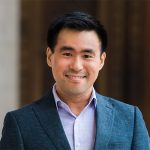Dr Jennifer Massey’s research focuses on AHSCT (Autologous Haematopoietic Stem Cell Transplantation) and other therapies that deplete parts of the immune system. She is particularly interested in how the immune system regrows after these therapies. Dr Massey will analyse blood and plasma samples of people with MS prior to, and at specific time points following treatment with AHSCT.
Dr Massey aims to shed light on the underlying cause of MS and how, once depleted, the immune system regrows or reboots such that it is functional and not mistakenly attacking the brain and spinal cord. Specifically, she aims to identify changes in the balance of white blood cells that prevent inflammation and white blood cells that cause inflammation. This will give us key insights into the immune system post-AHSCT, and may help in enhancing understanding of how AHSCT works for MS.
To date, several aims of the study have been realised using the St Vincent’s Hospital MS database and biobank. A deep exploration of white blood cells called lymphocytes has been performed in people with MS who have undergone AHSCT to better understand the immune reconstitution. The key findings are around the patterns of immune reconstruction following AHSCT, measuring different types of lymphocytes, and identifying important markers that may be implicated in MS relapses or worsening disease.
During AHSCT, there is initial immune depletion (by chemotherapy) and re-infusion of the stored immune stem cells. Immediately following these procedures, there is a very low count of immune cells called lymphocytes in the blood, known as “lymphopenia”. Dr Massey has found that a state of lymphopenia favours the regrowth of particular immune T cells that can suppress autoimmunity. By measuring immune cells up to 3 years after transplant, the study also showed that even after the number of immune cells has full restored, changes in T cell balance achieved by the transplant remain stable at 3 years post-transplant. Dr Massey’s work suggests that the main mechanism behind sustained remission from MS after AHSCT is related to the depletion of inflammatory immune cells. Interestingly, a specific type of T cell was detected after AHSCT in one patient at the time of a clinical relapse, and may potentially be associated with relapse, although further work is required to understand this phenomenon.
Dr Massey will now perform long-term monitoring of different types of B and T cells in reinfused stem cells before and after AHSCT to determine the influence of these cells on the outcome of AHSCT.
This research project aimed to understand the immune changes in 20 people with relapsing-remitting multiple sclerosis (RRMS) who underwent AHSCT, a treatment for severe MS cases unresponsive to other therapies. The study compared these people with others receiving different MS treatments.
The four main goals were to analyse white blood cells called lymphocytes over time following immune reconstitution therapy, study proteins on the surface of T-cell cells (a type of immune cell) for markers of disease, examine the presence of immune cells within the re-infused stem cell product (known as the ‘graft’ and made up of different blood cells) pre and post AHSCT, and finally, examine new immune cells produced after treatment.
During AHSCT, initial immune depletion by chemotherapy followed by reinfusion of stored stem cells creates low lymphocyte levels (lymphopenia). Dr Massey found that lymphopenia favours the growth of T cells that suppress autoimmunity. Measuring immune cells up to three years post-AHSCT showed stable changes in T cell balance, suggesting that AHSCT’s lasting remission effect is due to depleting immune cells that cause inflammation. One person who had undergone AHSCT had a specific T cell type linked to relapse, needing further study.
Dr Massey most recently performed long-term monitoring of different types of B and T cells in reinfused stem cells before and after AHSCT to determine their influence on the outcome of AHSCT. The findings suggest that achieving early immune tolerance after AHSCT is likely due to a decrease in harmful cell populations after the transplant. The initial number of regulatory T cells (T cells that regulate activity of other immune cells) in the graft seems less crucial for treatment success than the early growth of T cells post-transplant. This suggests that boosting regulatory T cells could improve long-term remission in MS.
Overall, this project has provided valuable insights into how AHSCT works and how the immune system rebuilds itself in people living with MS, laying the groundwork for improving treatment strategies.
Updated 31 March 2024
$180,000
2020
3 years
Past project




